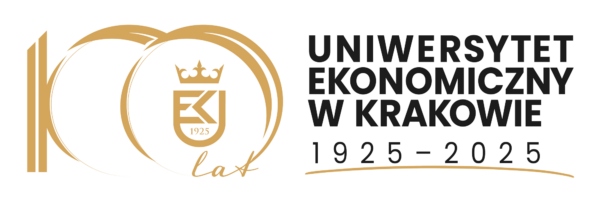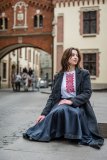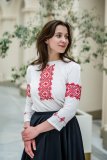Maryia is passionate about dancing, exploring human mind and continuous self-development.
After political unrest she was forced to leave Belarus. She relocated to Vilnius and turned adversity into action by founding a psychological networking community.
She opens up about the strength it takes to start over, the value of community and also how challenges shaped her and how she learned to face them.
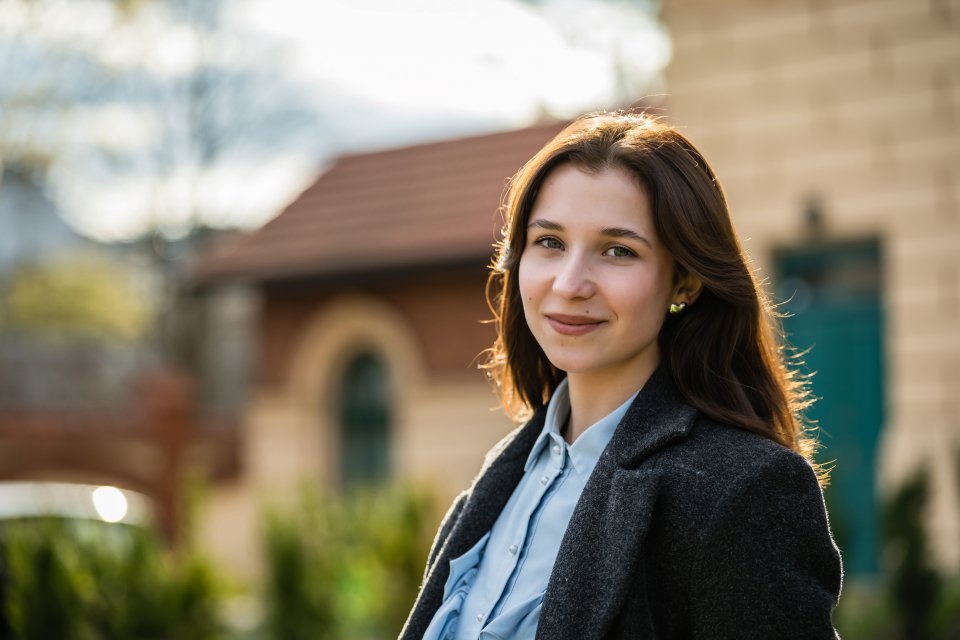
Welcome centre: Hi! Nice to have you on the project.
Maryia Zhogal: Hello, I’m happy about that too!
Welcome centre: Please tell us something about yourself.
Maryia Zhogal: My name is Maryia and I am currently pursuing a degree in International Business at KUE. Over the past four years, I have lived abroad, dedicating myself to advancing Belarusian science, enriching social life of our diaspora and supporting innovative business initiatives. Beyond my academic pursuits, I am deeply fascinated by psychology and neurology. I love exploring the intricacies of the human brain and discovering ways to unlock its full potential. I have also been dancing for 14 years.
A major turning point in my life came in 2021, when political circumstances forced me to relocate to Lithuania. In the wake of the 2020 protests in Belarus and the subsequent repressions, I made the difficult decision to start over in Lithuania. There, I founded YOCH, a psychological networking initiative in Vilnius that connects people passionate about psychology, self-development, and creativity—especially among Belarusian and Ukrainian immigrants. This project not only allowed me to build a supportive community but also helped me develop leadership and organizational skills.
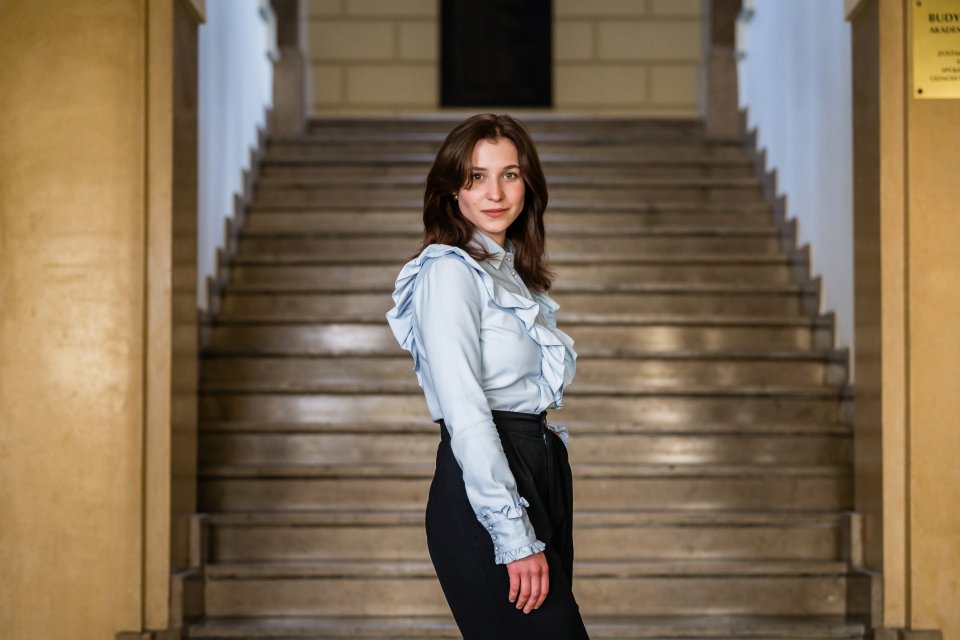
Welcome centre: That’s truly admirable. You’ve not only adapted to challenging circumstances but also turned them into opportunities for building something meaningful. YOCH sounds like a truly valuable initiative for the community. But it must have been incredibly tough to go through all of this.
Maryia Zhogal: Yes, it was incredibly challenging. After my relocation, I had no choice and no opportunity to return home. Watching my parents start over from nothing - leaving behind everything they had in Belarus, without money or clear prospects - yet facing it all with resilience and optimism, taught me a powerful lesson. I realized that home is not a physical place but something you build with your own hands and invest your soul into. I came to understand that challenges are just new opportunities for growth, not a reason to give up.
Welcome centre: It’s a really valuable takeaway, especially considering everything you’ve been through. It’s impressive how you’ve maintained a positive attitude and focused on growth. Moving to Lithuania must have been significant experience. How did you find it living abroad for the first time?
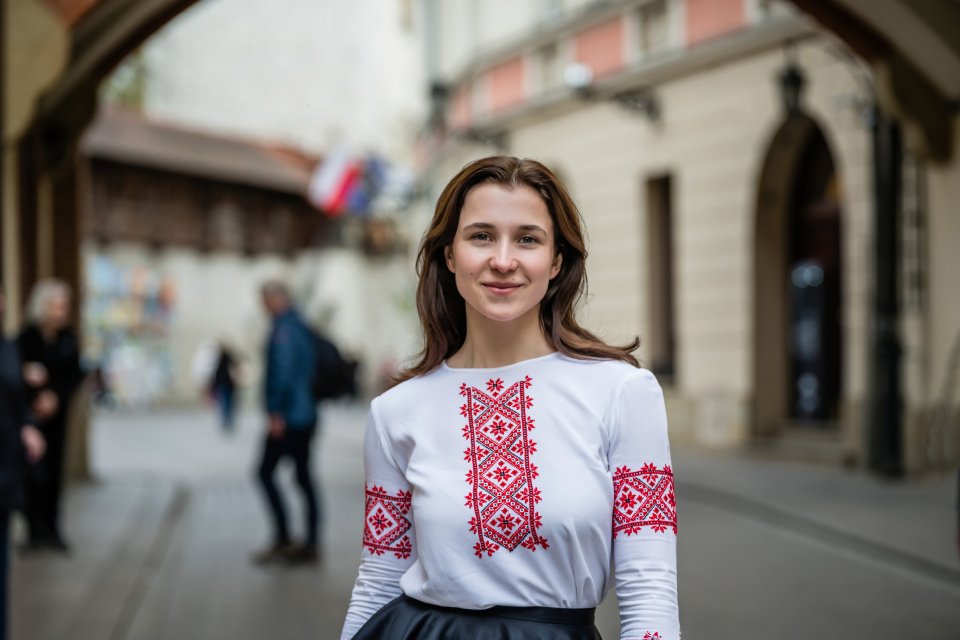
Maryia Zhogal: The hardest part of emigration was realizing that you are truly on your own, that no one needs you except yourself, and that people will always see you as a foreigner. In the beginning, the sense of home was completely lost, and my first year abroad felt like a nightmare. The language barrier, cultural differences, and loneliness were a heavy burden. But once you settle in, you start to adapt—you begin to understand people better, and with that comes the realization that home is where your people are.
Welcome centre: So, fortunately even such challenging situations can improve over time. Moving to Poland must have been another big change in your life, what was your experience like when you came here for your studies?
Maryia Zhogal: Moving to Poland and enrolling at UEK was a much smoother and more enjoyable experience. The biggest challenge this time was once again adjusting to a new mentality—Polish people are more expressive and open compared to those in Lithuania, so I had to get used to that. However, from the very beginning, I was warmly welcomed at the university, and I quickly realized that I had nothing to worry about. I found a community of like-minded people right away and never encountered any serious difficulties.
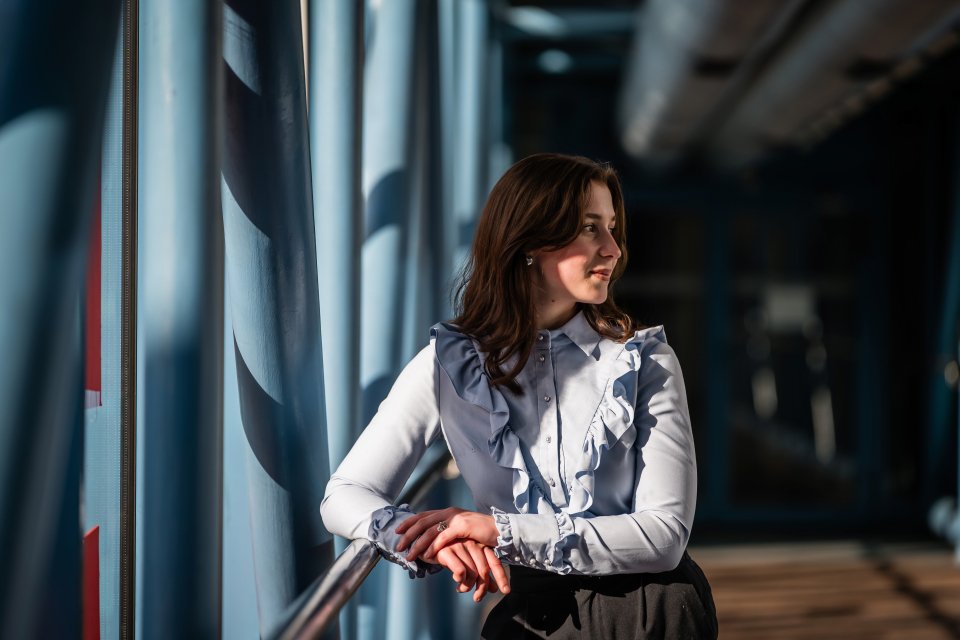
Welcome centre: Seems like your transition to life in Poland went quite smoothly. It’s reassuring to know that the university environment made such a positive difference. And what do you like the most at our uni?
Maryia Zhogal: What I truly appreciate about my studies is the strong emphasis on practical learning and acquiring up-to-date knowledge. Compared to Belarus, where students often study materials that are decades old, I find it incredibly valuable that we engage in extensive research, analysis, and apply a hands-on approach to our coursework. I also admire the approach of our professors, who are not just academics but experienced professionals with years of hands-on expertise in their respective fields.
Welcome centre: It really makes a difference when what you’ re learning is up-to-date and applicable. Everyone is more engaged when they see the real-world value of their studies. Have you already had a situation where something you learned at the university turned out to be useful in your career?
Maryia Zhogal: Actually, yes – I currently work for a company specializing in renewable energy, particularly solar panels, and I am already applying the knowledge gained during my studies. For instance, last semester, I wrote a research paper titled “Sustainable Energy Footprint in Nordic Countries and Its Impact on the Baltic States.” Around the same time, the Baltic states disconnected from the Russian energy grid, and my research provided me with a clearer and more precise understanding of the developments in my professional field.
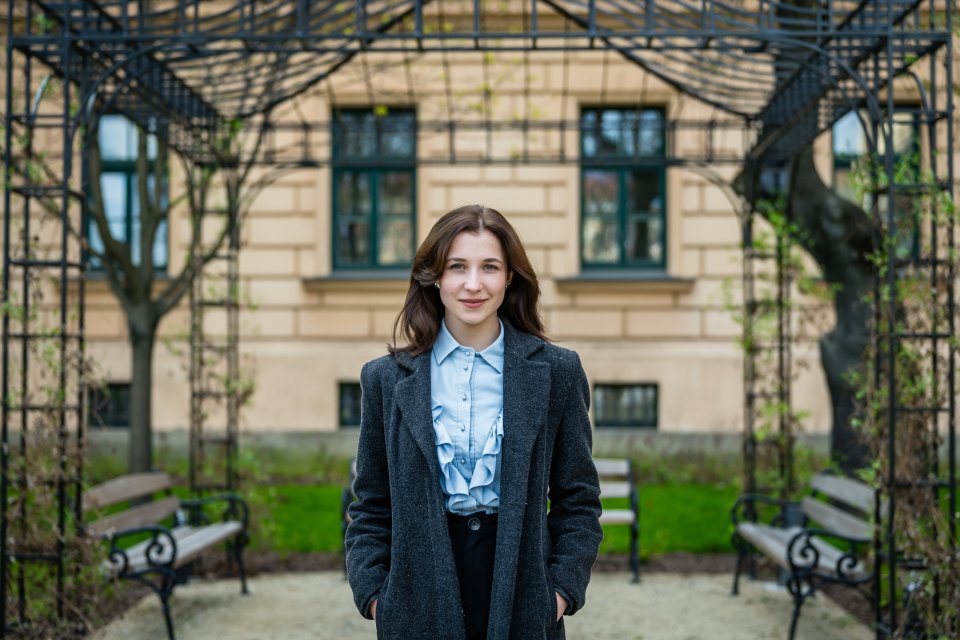
Welcome centre: It’s a great example of how academic work can directly support your professional growth.
Maryia Zhogal: I completely agree! In addition there are a few other things I really enjoy here. I am very grateful to our university for organizing various events and conferences. One of the highlights is "Targi Pracy". I also appreciate the many exchange programs and the possibility of earning a double degree. The double degree option was a key factor in my decision to choose KUE, as it offers incredible international opportunities.
Welcome centre: There are many things you appreciate about our uni, but is there maybe something you don’t like or something that needs improvement?
Maryia Zhogal: In reality, our university has countless advantages—I could talk about them endlessly. The only thing I would love to see more of is events and student clubs conducted in English. As far as I know, KUE currently has only two English-speaking student organizations, one of which I am a part of. Expanding these opportunities would greatly benefit international students looking to engage more actively in university life.
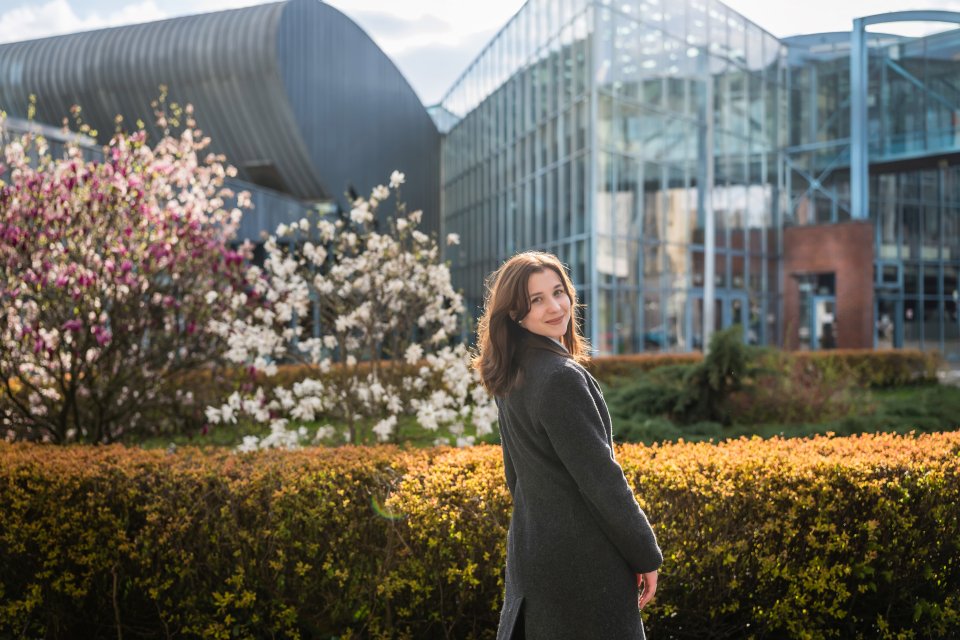
Welcome centre: Do you think your time studying in Poland will give you and advantage in your future career?
Maryia Zhogal: I believe that studying in Poland has already given me valuable experience in international communication. At KUE, we have a diverse community of international students, including many from the Erasmus program, and building connections with them is incredibly beneficial in the long run. Moreover, the opportunity to intern at international companies opens doors to the global business world, for which KUE thoroughly prepares its students.
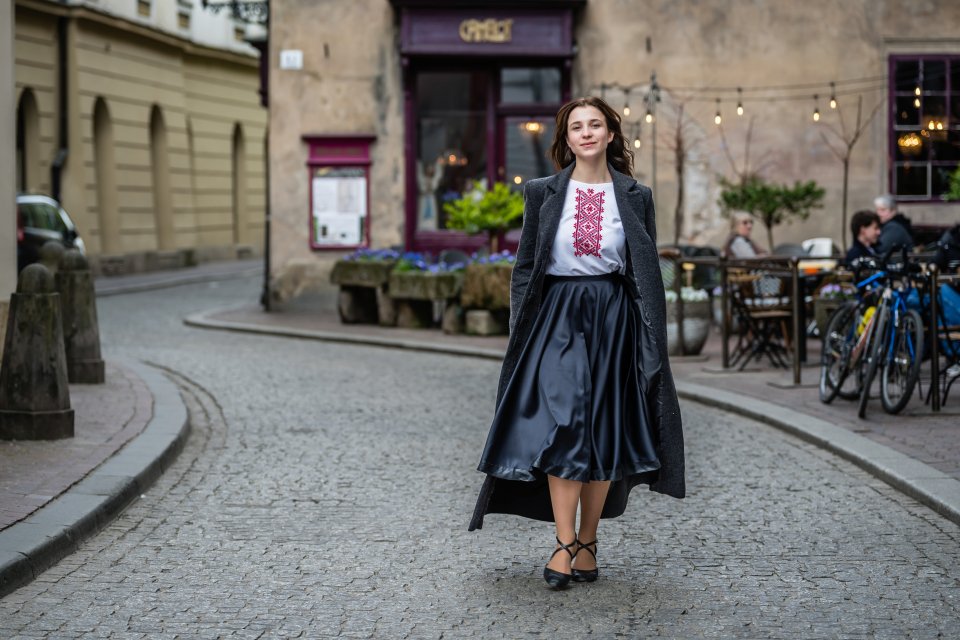
Welcome centre: And the last question -what would be your advice to other international students or applicants who are still hesitating or feeling uncertain about going abroad?
Maryia Zhogal: I would advise not to be afraid to take risks because fear often leads to procrastination and missed opportunities. However, before making a bold decision and drastically changing your life, it is crucial to have a clear understanding of what you truly want and carefully weigh the pros and cons. Once you identify your values, motivation, and the “why” behind your decision, the most important—and often the hardest—part is taking that first step.
Welcome centre: Thank you for sharing your experiences! We are delighted to meet such a positive person.
Maryia Zhogal: Thank you too!
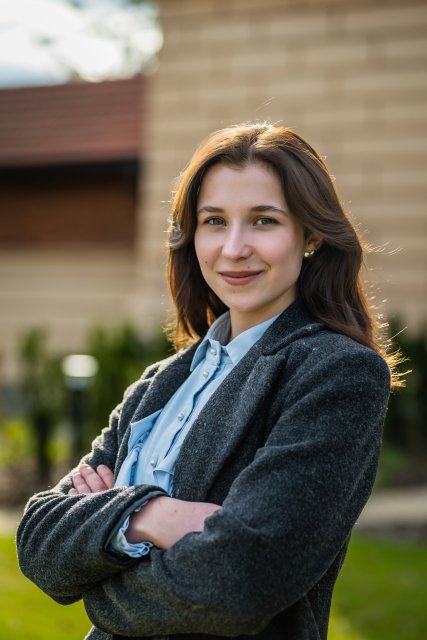
Welcome Centre UEK
Welcome Centre UEK – a multilingual unit at Krakow University of Economics (KUE), providing professional service and help to foreign students and applicants, as well as guests and doctoral students.
The Project is financed by the Polish National Agency for Academic Exchange under the Welcome to Poland Programme.

